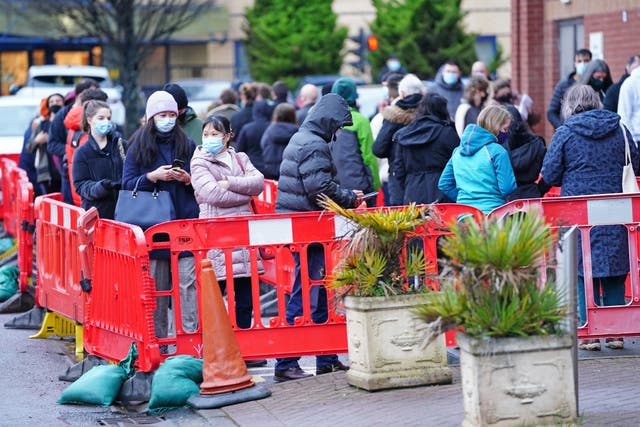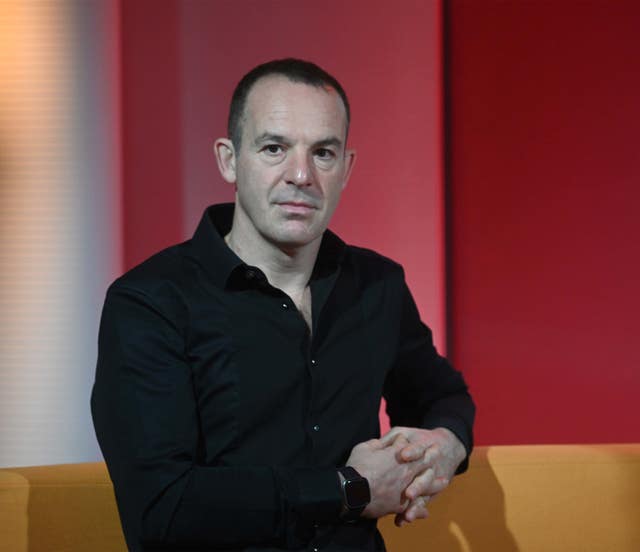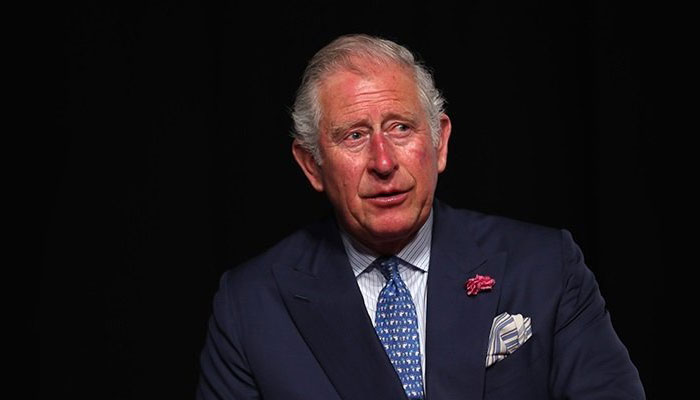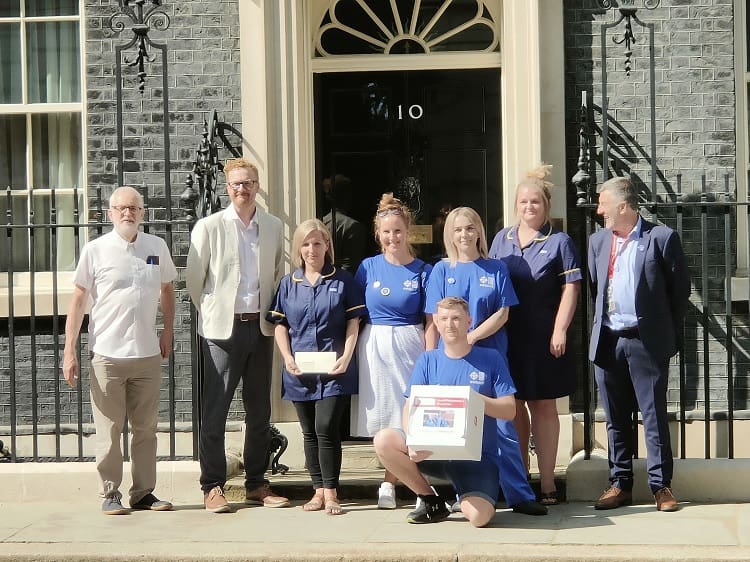The jury is currently considering its verdict in the trial of four of the people who toppled a statue of slave trader Edward Colston. On 4 January, Bristol Crown Court heard closing speeches from the defence and the prosecution.
The pulling down of the statue happened during Bristol’s huge Black Lives Matter demonstration on 7 June 2020.
The trial of the Sage Willoughby, Rhian Graham, Milo Ponsford, and Jake Skuse – dubbed the ‘Colston Four’ – has been ongoing since last December, and 4 January was the first day back in court after a break for Christmas and New Year.
Blinne Ní Ghrálaigh – the defence barrister for Rhian Graham – told the jury in her closing speech that Colston was responsible for the enslavement of 84,000 Black people – including 12,000 children – and the deaths of 19,000 people. She said that a:
line in the sand was drawn on 7 June 2020 by those who joined together to pull the statue down and to dump it in the harbour. They recognised the need to make clear that Colston’s victims, those 84,000 Black lives – more than three times the total number of the Black community in Bristol today – that they mattered. That those Black lives matter. That they will not be forgotten or airbrushed out of history. That their descendants’ pain will not be ignored. That their slaver – their tormenter – will not continue to have his crimes whitewashed, as he towers above them on his pedestal.
She said that those enslaved by Colston were:
torn from their homes and families; chained; whipped; branded with a red hot iron with the initials of his company; and shipped across the sea as things – not as human beings – on a journey of horror
She continued:
You heard about the slave ships… You’ve heard about the chilling term “wastage”. You heard about the rapes and beatings. You heard… about it taking seven years to literally work an enslaved person to death.
Raj Chada – defence counsel for Jake Skuse – said to the jury:
The statue of Edward Colston, standing in the centre of Bristol, [was] utterly indecent, offensive and disgraceful. We all know that.
An act of defiance against racism
The Bristol demonstration was part of the global Black Lives Matter movement that came in the wake of the killing of George Floyd by Minneapolis police.
Ní Ghrálaigh told the jury:
On 25 May 2020 shortly after 8:20 pm, African American George Floyd was murdered by police officer Derek Chauvin, who knelt on his neck for 8 minutes and 46 seconds until he stopped breathing. The video of his long drawn out killing went viral around the world. People heard his repeated pleas of “I can’t breathe” and his desperate cry to his dead mother
People in Bristol were quick to join the movement. On 7 June, 10,000 people gathered on College Green for the biggest in a series of powerful Black Lives Matter demonstrations. Tiffany Lyare – one of the demonstrators – told Vogue Magazine at the time:
I didn’t want to protest just because of the loss of George Floyd’s life, but because of the fact that I am also black and I have experienced discrimination and racism first hand
Lyare added:
It almost felt like it was a personal attack to myself in a way
We all toppled Colston
As the marched passed the statue of Edward Colston, people paused and began to work together to remove the statue by putting a rope around its neck and pulling.
The court was reminded that one of the police witnesses earlier in the case had estimated that thousands of people had been involved in taking the statue down. According to Ní Ghrálaigh:
Police Officer Julie Hayward estimated that there were in excess of 3,000 people around the statue, just under a third of her estimated total of at least 10,000 marchers.
These included:
Those people around the statue who joined together spontaneously to pull as one on the rope that Rhian Graham had supplied [and] those people who applauded them as they did.
Ní Ghrálaigh told the court that:
After the slave trader was toppled, and the jubilations were over, a Black man knelt on Edward Colston’s neck for 8 minutes and 46 seconds, the length of George Floyd’s slow murder. The statue was rolled to the harbour and unceremoniously dumped in the water.
Chada told the jury that Jake Skuse was one of the people who helped drag the statue across the cobblestones to the harbour. According to Chada, the cobblestones were:
cobbles which in his mind signified where people would have been dragged unwillingly in centuries before, dragged to the harbour in the symbolic act of being dumped there.
‘At least I won’t have to see that fucking slave trader on my way to work anymore‘
After the toppling of Colston, hundreds of messages of support were left at the foot of the – now empty – plinth. Some of them read:
I want to send my gratitude to the people who participated in the toppling of the Colston statue. It was never an erasing of culture but creating a better informed history…
Power to the people. Equality is Quality.
and:
At least I won’t have to see that fucking slave trader on my way to work anymore.
Aftermath
The events of 7 June – and the momentum of the global Black Lives Matter movement – led to the renaming of Bristol’s Colston Hall and a decision to rename two schools in Bristol named after the slave trader. The court also heard that a pub in Bristol changed its name; that the stained glass windows and other dedications to Colston had been removed from St Mary Redcliffe Church and Bristol Cathedral, and that Colston Tower has been renamed Beacon Tower. The Colston Society also voted to close itself down.
The court heard that the toppling of the statue of Colston had been celebrated in Trinidad and had been mentioned during the funeral of George Floyd in the US. Ní Ghrálaigh told the jury:
Gloria Daniel, the great, great granddaughter of the enslaved child John Isaac, emphasised the significance of the toppling. She said that it served as a marker that “we had finally arrived at a place in history where people would no longer tolerate the continuing dehumanisation of Black people”.
Despite the massive public support for the toppling of the statue, Avon & Somerset Police – egged on by Priti Patel – made a series of arrests and eventually charged the four people who are in court with criminal damage. The Glad Colston’s Gone campaign commented at the time:
Hundreds can clearly be seen on camera to have been involved in various activities that led to this object being pushed into the harbour. Despite this, authorities have decided to single out four people
In response to the statue toppling, the Tory government’s controversial Police, Crime, Sentencing and Courts Bill is proposing a new offence of damaging national monuments, which would make actions like the one against the Colston statue punishable by up to ten years imprisonment.
‘If you have a festering cancer like Colston, you cut it out’
Tom Wainwright – the defence barrister for Milo Ponsford – likened the removal of the statue to removing a cancer:
If you have a cancer like Colston festering in your city, you cut it out. Even a new plaque would only have been a sticking plaster. Cutting it out will leave a scar, so that people remember what was there in the past and make sure it doesn’t return, but only once it is gone can the body heal. You have heard during this trial of the positive impact this action had, in prompting action where there was lethargy, promoting understanding where there was ignorance, provoking discussion where there was silence. Not just in this city, not just in this country but around the world. Bristol, like its tower, is no longer weighed down by the name of Colston but is a beacon showing how to bring communities together.
Stephen Clarke – who is an ex-lawyer observing the trial – tweeted:
Clarke tweeted this about defence barrister Liam Walker’s closing speech on behalf of Sage Willoughby:
A ‘deliberate defence’ of the slave trade
The court heard that the statue was erected almost two centuries after Colston’s death, due primarily to the efforts and funds of James Arrowsmith. Ní Ghrálaigh told the court that Arrowsmith was part of the Society of Merchant Venturers
This was the same society that Colston had been part of, and which had been instrumental in pushing forward centuries of white supremacy, enslavement, and colonisation.
Ní Ghrálaigh explained the context of the memorialisation of the erection of the Colston statue in 1880:
As you have heard, the statue of Colston was erected 170 years after Colston’s death. That was nearly 90 years after the slave trade had finally been outlawed in Britain.The statue celebrated someone from the distant past whom James Arrowsmith knew had made his fortune from slavery. Some historians… believe that
it was erected in direct response to the statue that went up the previous year to Edmund Burke, an opponent of the slave trade.
The statue would not just have been a whitewash of Colston’s role in the slave trade. If those historians are right, it would have been a deliberate defence of the trade, at a time when the depravity of treating human beings as things had long been laid bare
The judge in the case reminded the jury of the evidence of Jonathan Finch, head of Culture and Creative Industries for Bristol Council, who told the court under cross-examination from the defence that “concerns had been raised” about the statue at least as far back as the early twentieth century, and that campaigns had been calling for its removal since at least the 1990s.
The jury was reminded that Finch admitted that people felt “very strongly” about it.
But Chada told the jury that the council had done nothing about these community concerns:
Despite knowing about all about its offensive nature, the statue was displayed for over 100 years. And the Council did nothing. They achieved absolutely nothing but over 100 years of inaction.
Ní Ghrálaigh and Chada told the jury that – after years of public pressure – the council had considered correcting the plaque, which extolled the virtue of Colston. However, the correction was thwarted when the Society of Merchant Venturers intervened.
Ní Ghrálaigh pointed out that Cleo Lake – former lord mayor of Bristol – and said it “embarrassing” that the defendants “were in the dock for doing something that many democrats in the City believed should have been done decades ago“.
Both Chada and Ní Ghrálaigh invited the jury to ask themselves why the council were appearing as witnesses for the prosecution for the pulling down of the statue. According to Ní Ghrálaigh:
Indeed, members of the Jury, you might think what on earth is the council doing giving evidence to support a conviction in this case, having itself so abjectly failed to deal with the statue for so many decades?
The defence argued that the four defendants had a lawful excuse for the toppling of Colston.
According to Ní Ghrálaigh
Rhian Graham, and the many others who pulled down the statue recognised the need to say: this is not Bristol. A slave trader is not Bristol. We will not continue to dress up a devil in angels’ robes.
“The unfinished business of a now discredited memory of slavery“
Bristol Radical History Group has published a collection of statements by Bristolians in support of the Colston topplers. You can read the full document here, but we thought it would be appropriate to end this piece by publishing one of them – written by a Black Bristolian.
This statement is by Ros Martin – a local artist – who was arrested in January 2021 for attending a protest in support of the Colston topplers. Martin’s arrest and prolonged detention was condemned as another example of racist and discriminatory policing. She made the following statement at the time in support of the Colston Four:
We take control of colonisation and slavery’s transatlantic narrative and legacies in our city through our actions of repair, reflection, remembrance the calling forth and honouring of African ancestors, whose blood and brutalised lives in plantation in the Caribbean and Americas built up the wealth of this city.
Linking past and present we can vision a better future, one in which we move from being mere bystanders to calling out and actioning a more just Bristol for all.
The toppling of the Colston statue… is the unfinished business of a now discredited memory of slavery in the city tainted in monuments to the so called ‘great and good of the city’, epitomising all that is self–serving and disingenuous about the wielding of power, not just in the past but currently in our midst.
Thank you for pulling down the statue, such a burden lifted. Onwards in struggle
Featured image via Youtube
By Tom Anderson
This post was originally published on The Canary.



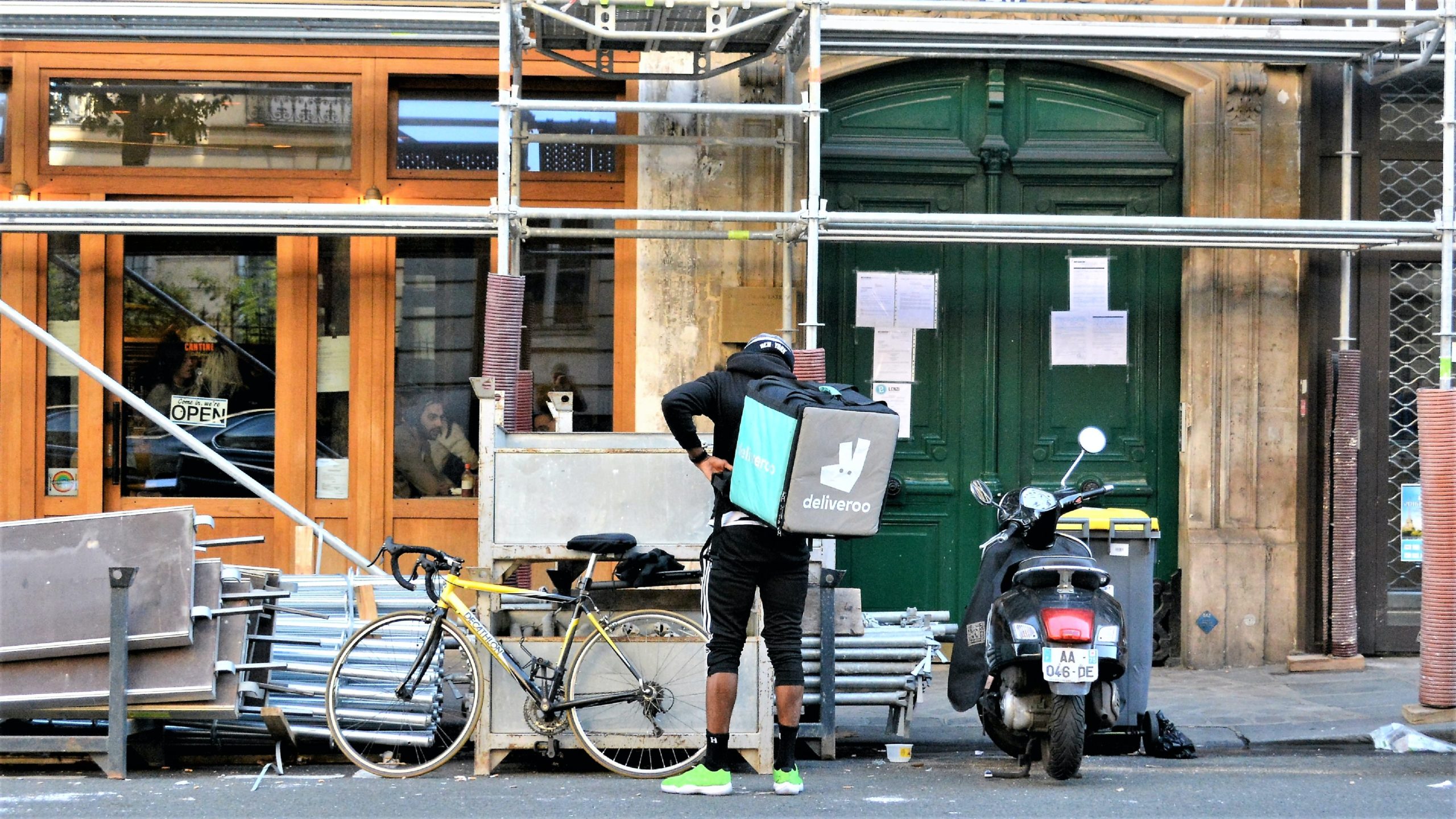

 (@ScottBentonMP)
(@ScottBentonMP) 
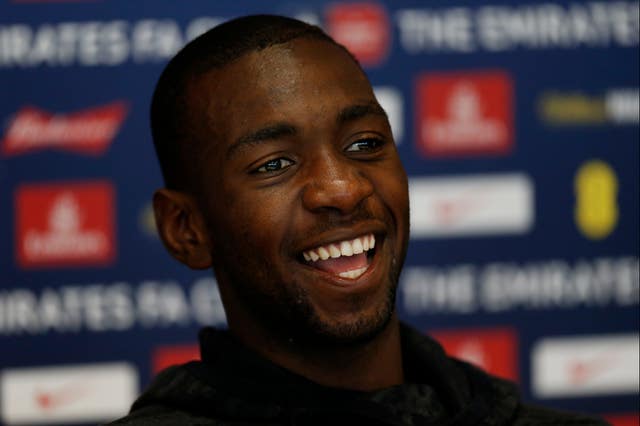




 blind people! – it was not inspired by the army.
blind people! – it was not inspired by the army.
 Boys club, misogynistic policing culture
Boys club, misogynistic policing culture If you're ever stopped by an officer, ask 'Am I being detained?'
If you're ever stopped by an officer, ask 'Am I being detained?' If the answer is no, you're free to walk away
If the answer is no, you're free to walk away Make a note of what's said
Make a note of what's said 


 (@BThroughParty)
(@BThroughParty)  (@RedCollectiveUK)
(@RedCollectiveUK) 